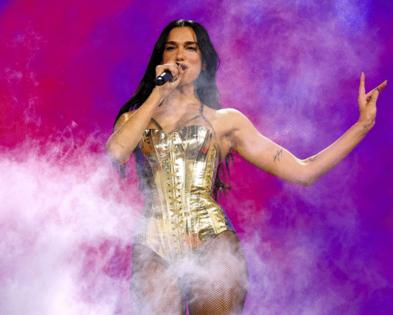The United Kingdom plans to ban ticket reselling for profit
Published in Entertainment News
The U.K. plans to pass one of the world's most sweeping anti-ticket-scalping measures, banning the resale of music, comedy, theater and sports tickets for profit.
After an open letter from artists like Dua Lipa, Coldplay, Sam Fender, Radiohead and the Cure urging Prime Minister Keir Starmer to ban the practice, the Department for Culture, Media and Sport will announce a plan to cap ticket resales at face value (with minimal fees).
They estimate the move could lower ticket prices by around 37 pounds ($49), saving fans around 112 million pounds ($147 million) per year. Fans will still be able to sell tickets to shows they can't attend, just not at any meaningful markup.
Ticket prices have been a hot topic in the U.K. after the long-awaited Oasis reunion tour highlighted Ticketmaster's "dynamic pricing" model. While a separate issue from reselling, that demand-reactive pricing system showed ticket costs skyrocketing in real time while fans waited in digital lines to buy them.
For those that missed out, they had few other options other than to pay inflated prices on third-party resale sites like Viagogo and Stubhub. The U.K.'s Competition and Markets Authority then opened an investigation into Ticketmaster's adherence to consumer protection laws.
U.K. Housing Secretary Steve Reed told the BBC that reselling for profit was "hugely damaging to individuals having to pay through the nose for tickets."
Before the announcement, Ticketmaster's parent firm, Live Nation Entertainment, said it already restricts resale prices in the U.K. to face value. The company said the proposal was "another major step forward for fans."
In the U.S., the company recently established an "all-in" pricing model to be more transparent about its infamous fees, saying that "The industry-leading initiative has proven beneficial for both fans and artists, delivering greater transparency for fans while increasing sales for artists and fewer abandoned carts at checkout."
Live Nation is currently facing a sweeping federal antitrust lawsuit in the U.S., alleging monopolistic practices, following heated Senate hearings the wake of Taylor Swift's Eras tour on-sale debacle. In March, President Trump issued an executive order "to protect fans from exploitative ticket scalping and bring commonsense reforms to America's live entertainment ticketing industry," and in September the Federal Trade Commission sued Ticketmaster and Live Nation for allegedly engaging in illegal ticketing practices in its resale business.
"American live entertainment is the best in the world and should be accessible to all of us," FTC Chairman Andrew N. Ferguson said in a statement in September. "It should not cost an arm and a leg to take the family to a baseball game or attend your favorite musician's show."
©2025 Los Angeles Times. Visit latimes.com. Distributed by Tribune Content Agency, LLC.













Comments